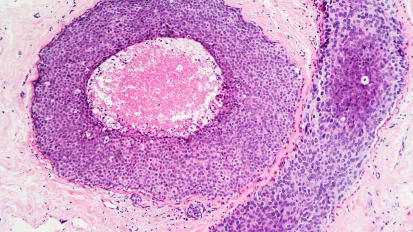Gregg Semenza, MD, PhD
Director, Vascular Program, Institute for Cell Engineering

Dr. Gregg L. Semenza is a professor of pediatrics, radiation oncology and molecular radiation sciences, biological chemistry, medicine, and oncology at the Johns Hopkins University School of Medicine. Dr. Semenza is the C. Michael Armstrong Professor of Pediatrics and serves as the director of the vascular program at the Institute for Cell Engineering.
One of today’s preeminent researchers on the molecular mechanisms of oxygen regulation, Dr. Semenza has led the field in uncovering how cells adapt to changing oxygen levels. He is best known for his ground-breaking discovery of the HIF-1 (hypoxia-inducible factor 1) protein, which controls genes in response to changes in oxygen availability. The finding has far-reaching implications in understanding and treating low-oxygen health conditions such as coronary artery disease and tumor growth.
He received his A.B. from Harvard University. He earned his M.D. and Ph.D. from the University of Pennsylvania, completed his residency in pediatrics at Duke University Medical Center and performed postdoctoral research in medical genetics at Johns Hopkins. Dr. Semenza joined the Johns Hopkins faculty in 1990.
Dr. Semenza’s research interests include the molecular mechanisms of oxygen homeostasis; gene and stem cell therapy for ischemic cardiovascular disease; the role of HIF-1 in cancer; and protection of the heart against ischemia-reperfusion injury. He has authored more than 250 research articles and several book chapters, and has been cited in research more than 30,000 times.
He is a founding fellow of the American College of Medical Genetics and was elected to the Association of American Physicians and the National Academy of Sciences in 2008. He serves on the editorial board of several journals, including Molecular and Cellular Biology and Cancer Research, and is editor-in-chief of the Journal of Molecular Medicine.
In 2012, Dr. Semenza was elected to the Institute of Medicine. He has been recognized with numerous other awards, including the Lefoulon-Delalande Grand Prize from the Institut de France, the Gairdner Award, the Stanley J. Korsmeyer Award, the E. Mead Johnson Award for Research in Pediatrics, the Jean and Nicholas Leone Award from the Children''s Brain Tumor Foundation, the Established Investigator Award from the American Heart Association, and the Lucille P. Markey Scholar Award in Biomedical Science.


